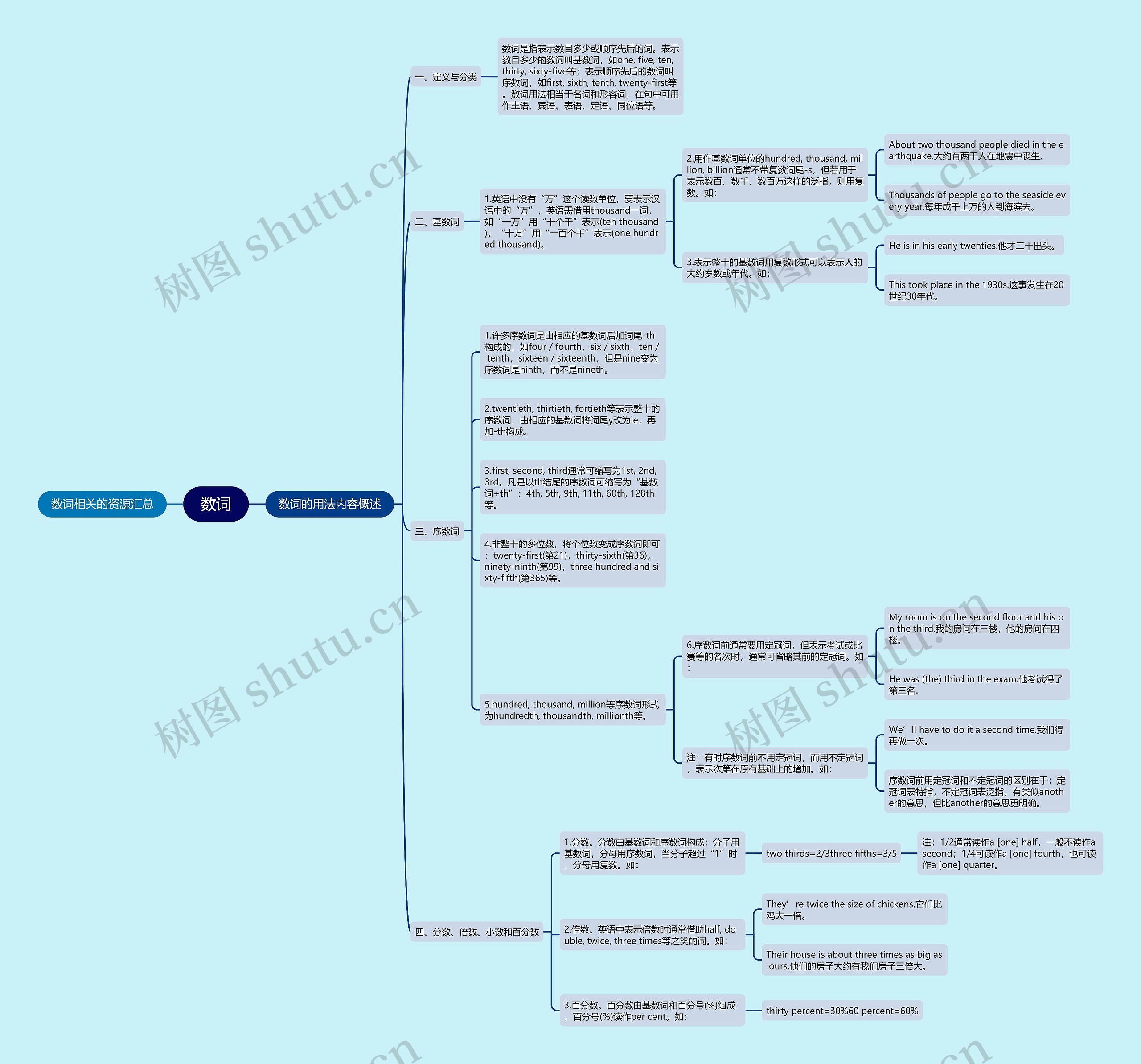1.许多序数词是由相应的基数词后加词尾-th构成的,如four / fourth,six / sixth,ten / tenth,sixteen / sixteenth,但是nine变为序数词是ninth,而不是nineth。
2.twentieth, thirtieth, fortieth等表示整十的序数词,由相应的基数词将词尾y改为ie,再加-th构成。
3.first, second, third通常可缩写为1st, 2nd, 3rd。凡是以th结尾的序数词可缩写为“基数词+th”:4th, 5th, 9th, 11th, 60th, 128th等。
4.非整十的多位数,将个位数变成序数词即可:twenty-first(第21),thirty-sixth(第36),ninety-ninth(第99),three hundred and sixty-fifth(第365)等。
5.hundred, thousand, million等序数词形式为hundredth, thousandth, millionth等。
6.序数词前通常要用定冠词,但表示考试或比赛等的名次时,通常可省略其前的定冠词。如:
My room is on the second floor and his on the third.我的房间在三楼,他的房间在四楼。
He was (the) third in the exam.他考试得了第三名。
注:有时序数词前不用定冠词,而用不定冠词,表示次第在原有基础上的增加。如:
We’ll have to do it a second time.我们得再做一次。
序数词前用定冠词和不定冠词的区别在于:定冠词表特指,不定冠词表泛指,有类似another的意思,但比another的意思更明确。

